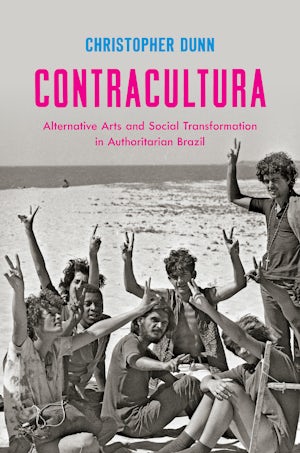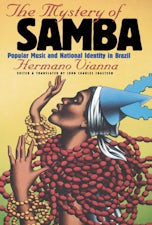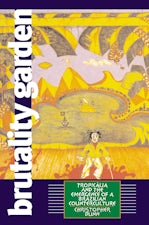Contracultura
Alternative Arts and Social Transformation in Authoritarian Brazil
By Christopher Dunn
272 pp., 6.125 x 9.25, 20 halftones, notes, bibl., index
-
Paperback ISBN: 978-1-4696-2851-6
Published: November 2016 -
Hardcover ISBN: 978-1-4696-3001-4
Published: November 2016 -
E-book EPUB ISBN: 978-1-4696-2852-3
Published: October 2016 -
E-book PDF ISBN: 979-8-8908-7793-2
Published: October 2016
Buy this Book
- Paperback $32.50
- Hardcover $99.00
- E-Book $0.00
For Professors:
Free E-Exam Copies
Awards & distinctions
2017 Roberto Reis Book Prize, Brazilian Studies Association
Honorable Mention, 2017 Brazil Section Award, Latin American Studies Association Brazil Section
Dunn reveals previously ignored connections between the counterculture and Brazilian music, literature, film, visual arts, and alternative journalism. In chronicling desbunde, the Brazilian hippie movement, he shows how the state of Bahia, renowned for its Afro-Brazilian culture, emerged as a countercultural mecca for youth in search of spiritual alternatives. As this critical and expansive book demonstrates, many of the country’s social and justice movements have their origins in the countercultural attitudes, practices, and sensibilities that flourished during the military dictatorship.
Open Access ebook sponsored by an award from the National Endowment for the Humanities Fellowships Open Book Program.
About the Author
Christopher Dunn, associate professor of Brazilian literary and cultural studies at Tulane University, is the author of Brutality Garden: Tropicália and the Emergence of a Brazilian Counterculture.
For more information about Christopher Dunn, visit
the
Author
Page.
Reviews
“A masterful work of cultural history, sure to be of compelling interest to any student of Brazil in the 1970s and of Latin American counterculture more generally.”--HAHR
“Dunn’s recurring discussions of the importance of a collective politics of style, his attention to geographic and imagined spaces of countercultural practice, and his analysis of the relationship of the counterculture to a growing consumer culture are especially worth noting. The book is a tour de force of both historical and cultural analysis that will push our understandings of counterculture and of its political potential. It should be of enormous interest to scholars of the long Sixties anywhere.”--The Sixties
“Contracultura talks about alternative cultural attitudes during the Brazilian military dictatorship, where arts, writing, journalism, sexual liberation and drugs could serve as escape valves from political repression, censorship and moralism. Christopher Dunn’s book thus contributes to the memory of a taboo time that continues to affect the present of Brazilian history.”--JAm It
"Contracultura will become the foundational work in English on Brazil's countercultural movement during the long 1960s. Revealing with tremendous insight and nuance the cross-currents of cultural protest, left-wing politics, state authoritarianism, and market forces, Christopher Dunn not only highlights the diversity of countercultural movements that emerged concurrently across Latin America during this period but also rightfully affirms the definitive place of Brazil's contracultura within that landscape."--Eric Zolov, Stony Brook University
"Beautifully written and stylistically brilliant, Christopher Dunn's lucid analysis of the Brazilian counterculture, which deserves as much attention as the North American one, lays out a new field of study. Conveying multiple points of view--the radicals and counterculturalists as seen even in the eyes of the police--this book is a page-turner."--Robert Stam, New York University



